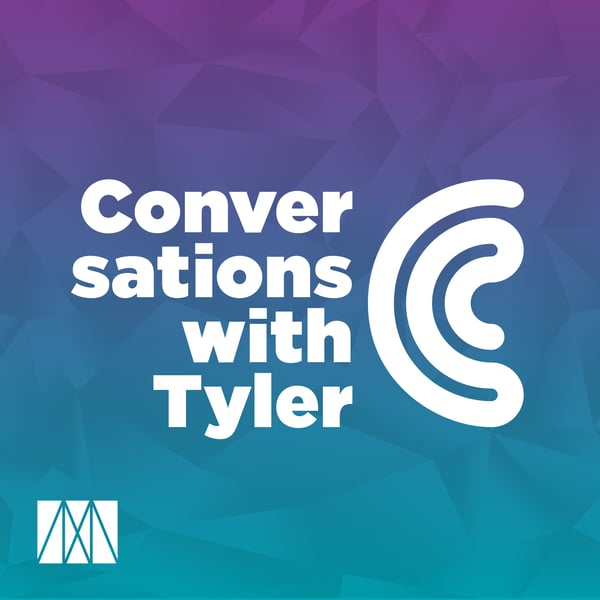Roy Foster on Ireland’s Many Unmade Futures
Conversations with Tyler
Conversations with Tyler
4.8 • 2.4K Ratings
🗓️ 6 April 2022
⏱️ 59 minutes
🧾️ Download transcript
Summary
“The best history,” says Roy Foster, “is written when we realize that people acted in expectation of a future that was never going to happen.” While this is the case for many countries, it’s especially true of Ireland—the land of The Troubles, of colonization, of revolution and reforms. This sympathy within his scholarship sets Foster’s work apart. Not content to simply document the facts of what did happen, he’s undertaken the role of reconstructing the motivations that animated the Irish people throughout its storied history--without which we cannot truly understand the Ireland of today.
Roy joined Tyler to discuss why the Scots got off easier than the Irish under English rule, the truths and misconceptions about Ireland as a policy laboratory for the British government, why spoken Irish faded more rapidly than Welsh, the single question that drove a great flowering of Irish economic thought, how Foster’s Quaker education shaped his view of Irish history, how the Battle of the Somme and the 1916 Easter Rising cemented the rift between the Northeast and the rest of the country, what went wrong with Irish trade policies between the 1920s and 1970s, the power of Irish education, why the re-emergence of The Troubles in the 1960s may not have been as inevitable as many people believe, the cultural effects of Ireland’s pro-Allied neutrality in World War II, how Irish visual art is beginning to be looked at in a similar way to Irish literature, the social and economic changes of the 1970s that began to radically reshape Irish society, the reasons for Ireland’s openness to foreigners, what Irish Americans misunderstand, and more.
Read a full transcript enhanced with helpful links, or watch the full video.
Recorded February 22nd, 2022
Other ways to connect
- Follow us on Twitter and Instagram
- Follow Tyler on Twitter
- Email us: [email protected]
- Subscribe at our newsletter page to have the latest Conversations with Tyler news sent straight to your inbox.
Transcript
Click on a timestamp to play from that location
| 0:00.0 | Conversations with Tyler is produced by the Mercatus Center at George Mason University, |
| 0:08.4 | bridging the gap between academic ideas and real-world problems. |
| 0:12.6 | Learn more at mercatis.org. |
| 0:15.2 | And for more conversations, including videos, transcripts, and upcoming dates, visit |
| 0:20.4 | ConversationsWithT Tyler.com. |
| 0:25.9 | Hello everyone and welcome back to Conversations With Tyler. |
| 0:29.8 | I'm here today with Rye Foster, who is arguably Ireland's greatest historian, some might say |
| 0:35.6 | ever. |
| 0:36.6 | I recommend his classic work, Modern Ireland. |
| 0:39.6 | He's also written a two-volume biography of Yates, one of the best biographies in ever, |
| 0:44.6 | I think, and numerous other books on the history of Ireland and also England. |
| 0:49.6 | Roy, thank you for coming. |
| 0:52.0 | Thank you for asking me Tyler. |
| 0:53.6 | I have many questions about Irish history. |
| 0:56.9 | If we go back to the 17th century and earlier, why is it that the equilibrium ends up that |
| 1:02.8 | the English are so much more brutal to the Irish than to the Scott? |
| 1:07.7 | That's a very good question and the comparison between Ireland and Scotland and their relative |
| 1:11.6 | experiences vis-à-vis. |
| 1:13.6 | The powerful neighbour goes on through many centuries, but the 17th century notably, I think |
| 1:19.1 | has in so many other cases, it comes down to religion and ethnocross, if I can put it |
| 1:24.6 | that way, a kind of cultural, ethnic identity. |
| 1:28.0 | The Irish were overwhelmingly Catholic in the global political world of the 17th century |
... |
Please login to see the full transcript.
Disclaimer: The podcast and artwork embedded on this page are from Conversations with Tyler, and are the property of its owner and not affiliated with or endorsed by Tapesearch.
Generated transcripts are the property of Conversations with Tyler and are distributed freely under the Fair Use doctrine. Transcripts generated by Tapesearch are not guaranteed to be accurate.
Copyright © Tapesearch 2025.

